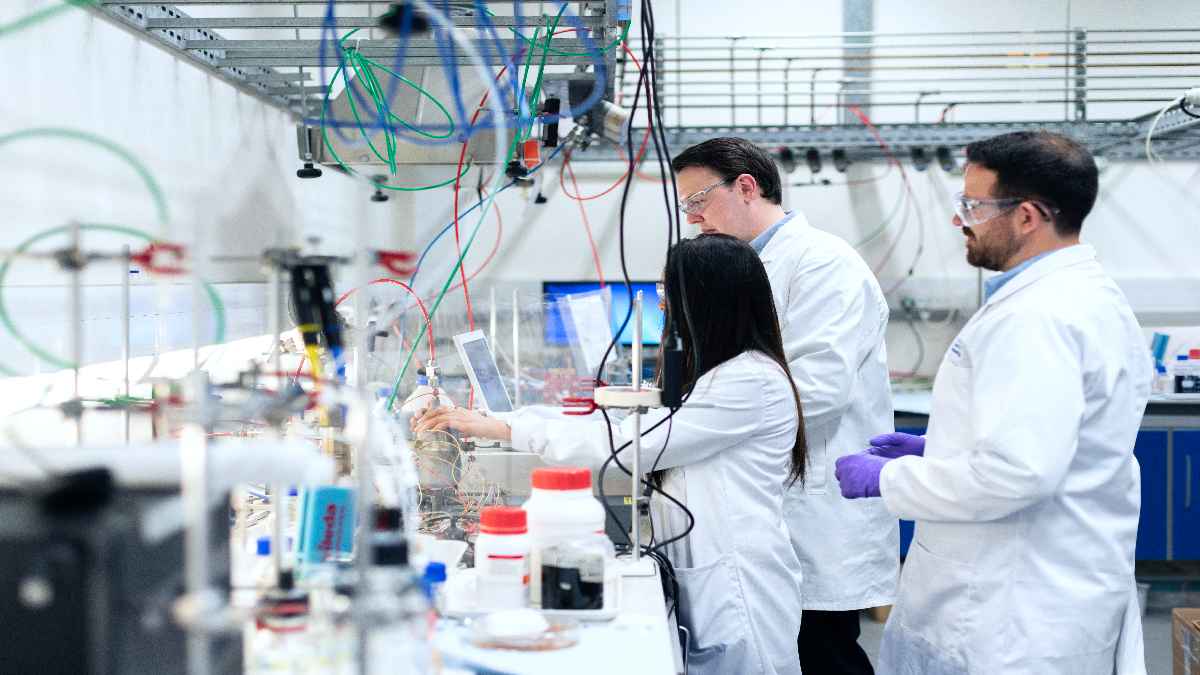Spectroscopy Applications Today You Might Not Know About
Spectroscopy is most often associated with the identification of substances, but it has many other applications that are just as important. This article will explore some of these lesser-known spectroscopic techniques and their various uses in today’s world.

1. Security and Access Control
Security is a growing concern in today’s world, especially with the increased threats of terrorism. One way to help prevent such acts is to be able to track people as they enter secure areas. Spectroscopy offers several useful applications for this very purpose. The most common form of spectroscopic security is using a spectrometer and spectral cameras to scan for the presence of explosives. In addition, some sensors for monitoring movement in restricted areas may contain spectrometers as well.
In conjunction with a spectrometer, infrared sensors are often used to monitor movement. Such systems will detect the heat of an object and determine if it is moving or not. Infrared radiation changes depending on whether light is being absorbed or emitted by an object. This makes it possible to identify the material that the radiation was originally from. This same process is used to identify and analyze objects for security purposes.
2. Molecular-level Analysis
One of the main goals of spectroscopy is to determine the structure and composition of a material. This allows scientists to understand how materials interact with light, which may in turn lead to discoveries about how such interactions affect certain substances. One way that this is accomplished involves using an interferometer and laser pulses. Spectroscopy is also used on a broader scale by the food industry. Food safety is one of the biggest concerns, especially when it comes to fresh fruits and vegetables. Spectroscopic analysis can be very useful in determining whether or not produce is being stored at the correct temperature. This can help prevent infections from spreading to other products as well as protect consumers from harmful bacteria.
3. Medical Applications
In today’s world, it is important to be able to detect potentially dangerous conditions early on. With the advent of genetic engineering and gene sequencing, it is now possible to predict certain medical conditions that could occur later in life due to a specific genetic makeup. According to the experts at PASCO, spectroscopy can be used to alter the structure of drugs to increase their effectiveness. Spectroscopic analysis can also be used with DNA profiling to determine the probability of an individual developing a disease. This serves as an important tool in predicting future health concerns and is used all over the world.
4. Spectroscopy with X-rays
X-ray spectroscopy is a lesser-known method for examining materials down to the molecular level. It involves using X-ray technology for identifying the composition of materials. This typically involves shooting a laser beam at the material and then collecting the diffraction patterns that are created by using x-rays to excite the sample molecules into different vibrational states. The resulting patterns help in determining the molecular identity of said materials.
5. Military Applications
It is no secret that spectroscopy plays a key role in military operations. Some of the most significant uses of spectrometry in this respect include targeting, surveillance, and identification systems. Military personnel is often exposed to dangerous situations and contaminated environments, making it important for them to be equipped with the right tools.
A common example of how spectroscopic analysis is used in the military is with weapons and vehicles. This allows them to differentiate between friendly and enemy personnel, as well as identify different types of substances based on factors such as color. Spectroscopic analysis can also be used to remotely detect explosives from a safe distance.
6. Analyzing the Environment
The environment is a very important factor in our daily lives. We all have to deal with certain elements that are found in the air. Because of this, it has become increasingly important to be able to detect these substances, especially when it comes to harmful pollutants or gasses. This not only helps farmers and plant owners keep their crops healthy, but also ensures that plant-based products are safe for consumption.
7. Ecology
Ecology provides important information about how certain species interact with one another in their natural habitat. This can help scientists better understand the ecosystem of an area and determine whether or not it is in danger from environmental factors as well as pollution. Spectroscopic analysis is especially useful for determining the growth rate of plants and can be used to detect animals and certain types of minerals within the earth.

Spectroscopy is a powerful tool that has many applications in the modern world. From helping to predict health concerns and food safety, to military operations or ecological research, spectroscopic analysis can be used for any number of different purposes. It is important to be aware of these applications so that we can use spectroscopy in the best way possible.